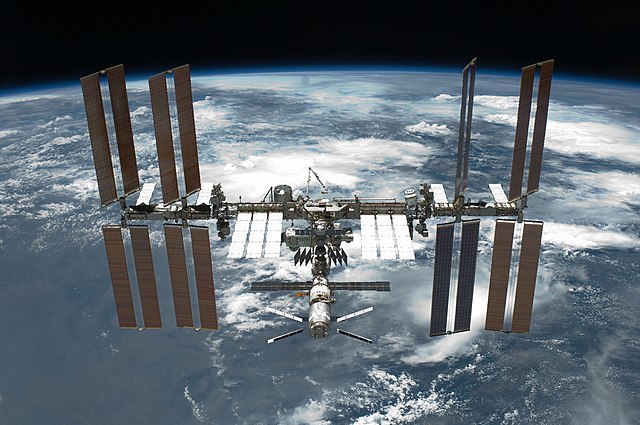NASA experts are studying ways to keep the International Space Station in orbit without the participation of Russia. Nevertheless, the ministry does not see any immediate signs that Moscow refuses to cooperate on the project.
NASA representative Kathy Lueders, who heads the agency's manned space flight program, told reporters during a teleconference on Monday that operations on the research platform are continuing as usual and in cooperation with all partners, including Russia. According to her, NASA air traffic controllers and other officials work in Moscow, and good communication has been established between American and Russian specialists.
"As a team, we are working the same way as three weeks ago—" she explains. —Nevertheless, we [NASA] are always looking for ways to achieve greater operational flexibility, and our cargo service providers are considering various possibilities."
Luders added that Northrop Grumman offers the possibility of adjusting the orbit, and colleagues from SpaceX are also exploring additional adjustment possibilities. Indeed, the Northrop Grumman Cygnus supply cargo ship, which docked with the ISS on February 21 this year, for the first time was able to "disperse" the ISS (actually adjust the orbit) without the help of the Russian Progress.
Why is this important? The fact is that the height of the ISS orbit is not constant. Due to friction against the rarefied, but still quite dense atmosphere of the Earth, a gradual deceleration of the station occurs and, as a result, a loss of altitude. Today, Russian Progress spacecraft are used to adjust the orbit.
However, last week, the head of Roscosmos, Dmitry Rogozin, raised the issue of withdrawing from the partnership in response to sanctions related to military actions on the territory of Ukraine. He announced this on his Twitter page, noting that in this case, the 400-ton station will simply collapse on our planet. In response, SpaceX CEO and chief engineer Elon Musk offered his company's services, adding its logo in the comments under Rogozin's post.
In her speech, Luders also stressed that the plans to work out the correction of the orbit on their own were only a measure in case of unforeseen circumstances. "It would be very difficult for us to work alone, because the ISS is an international partnership whose participants are mutually dependent," she recalled.
Note that NASA has not yet issued a statement condemning Russia's actions on the territory of Ukraine. Apparently, Luders and other high-ranking officials are trying to maintain a mutually beneficial partnership. In turn, the European Space Agency has published a statement in which it discusses the possible consequences of the imposition of sanctions for its common projects with Roscosmos.

